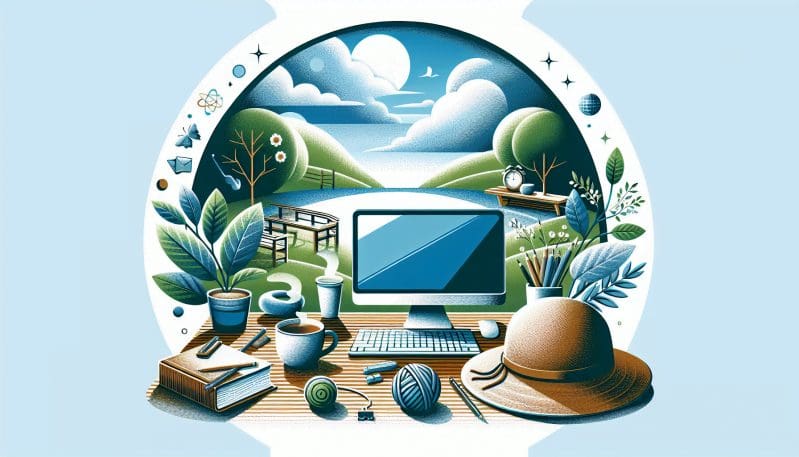Navigating the Invisible Labor of Remote Work: Mental Health in the Digital Age
- Home
- Navigating the Invisible Labor of Remote Work: Mental Health in the Digital Age

- Editors Desk
- January 29, 2024
- 0 Comments
In the quiet solitude of your home office, or the bustling ambiance of a coffee shop corner, you’re part of a growing workforce that has traded traditional office spaces for the digital nomad lifestyle. Remote work promises freedom, flexibility, and an end to dreaded morning commutes. However, as we delve further into this modern work revolution, it’s become increasingly clear that it’s not without its own unique set of challenges – particularly for our mental health.
Remote workers commonly face what’s termed ‘invisible labor’ – the mental and emotional efforts that go unnoticed and unquantified in the grand scheme of productivity. This consists of the constant balancing act between work and personal life, the need to maintain self-discipline amidst home comforts, and the struggle to forge clear boundaries when your living room doubles as your boardroom. These silent battles can have profound impacts on our mental well-being.
One of the primary challenges is isolation. The lack of face-to-face interaction can leave remote workers feeling disconnected from their peers and company culture, leading to feelings of loneliness and disconnection. The absence of casual ‘water cooler’ conversations not only diminishes social bonds but can also lead to inadequate communication, making it difficult to collaborate or seek support when work stress accumulates.
Another significant issue is the ‘always-on’ mentality, where remote workers find themselves checking emails at all hours, responding to messages late into the night, and having difficulty disconnecting from work. This can lead to burnout – a state of emotional, physical, and mental exhaustion caused by prolonged stress. It’s a quiet crisis brewing in the home offices and shared working spaces across the world.
So, how do we navigate these challenges and prioritize mental health? Firstly, establishing a routine and dedicated workspace can help in mentally separating work from personal life. Consistent start and end times, along with scheduled breaks, can foster discipline and reduce burnout. Regularly setting work boundaries is just as crucial – when the workday ends, so should work-related tasks and communications.
Creating a sense of community is also vital. Remote workers should be encouraged to engage in virtual team-building activities and utilize communication tools not just for work, but to build relationships with colleagues. Companies can facilitate this by organizing online social events or providing platforms that encourage casual conversations and peer recognition.
Additionally, integrating wellness practices into the workday can significantly benefit mental health. Encouraging techniques like mindfulness, meditation, and regular exercise can help keep stress levels in check. Companies have a role to play here too – by providing resources, creating wellness challenges, or even offering subscriptions to mental health apps.
Personal stories from remote workers often reveal innovative solutions and adaptive strategies which serve as inspiration for others. For example, some have created virtual coworking spaces, where they log in and work side-by-side with peers in a digital setting, simulating the office environment while maintaining the comfort of their chosen workspace.
As companies continue to embrace remote work, they must also recognize the importance of supporting the mental health of their workforce. From implementing policies that encourage work-life balance to providing access to mental health resources, it’s imperative that organizations take an active role in ensuring the well-being of their employees. The digital age has transformed the way we work, and now it’s time to transform how we care for the workers within it.
The invisible labor of remote work is a multifaceted issue that requires a multifaceted approach. By discussing our challenges openly, exploring strategies for balance, and fostering communities of support, we can ensure that the shift to remote work enriches not just our professional lives, but our mental health as well. Together, we can pioneer a future where work enables freedom, innovation, and wellness in equal measure.
Choose Layout
Main Color Scheme
- RTL Version
- LTR Version
